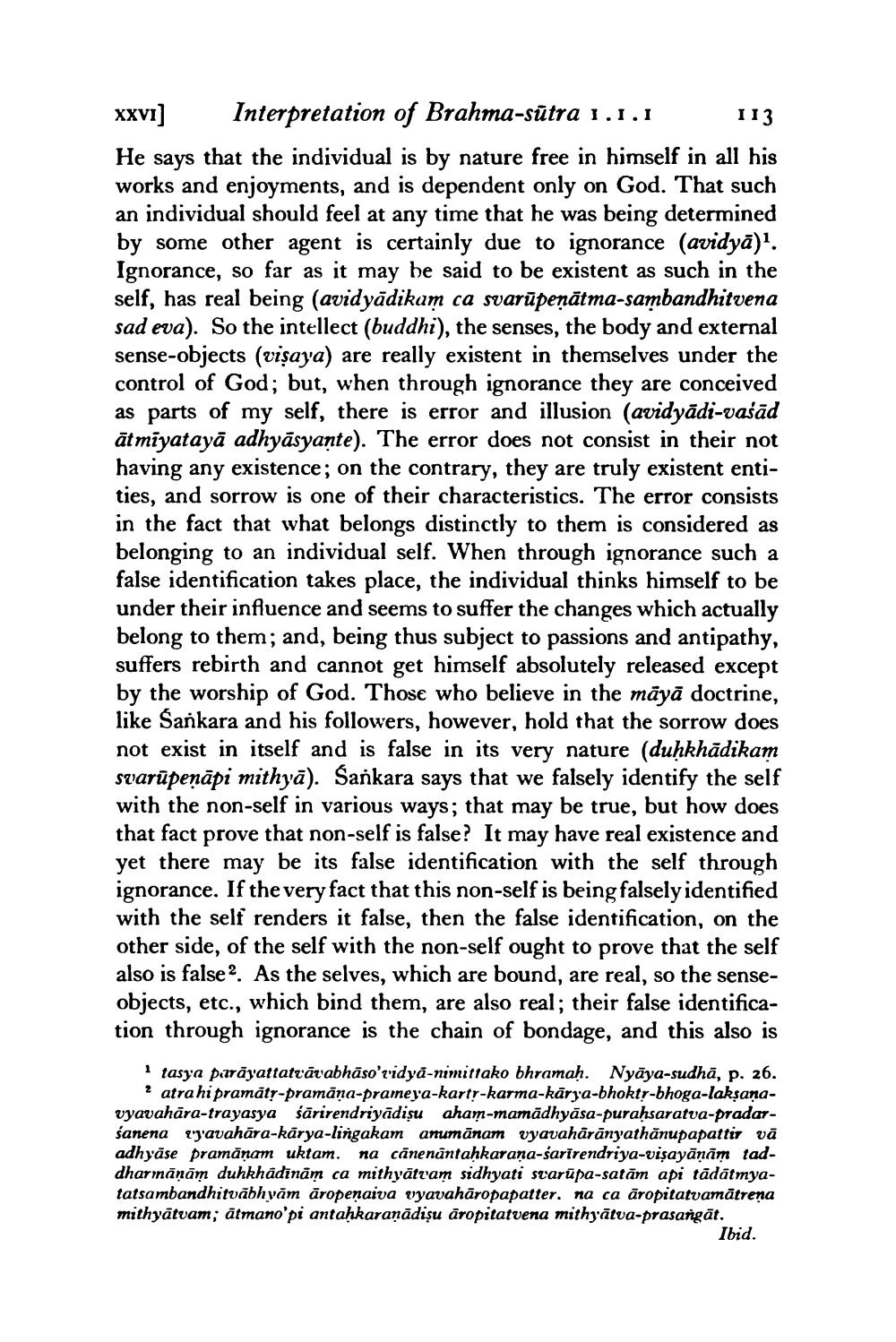________________
XXVI] Interpretation of Brahma-sūtra 1.1.1 113 He says that the individual is by nature free in himself in all his works and enjoyments, and is dependent only on God. That such an individual should feel at any time that he was being determined by some other agent is certainly due to ignorance (avidyā). Ignorance, so far as it may be said to be existent as such in the self, has real being (avidyādikam ca svarūpeṇātma-sambandhitvena sad eva). So the intellect (buddhi), the senses, the body and external sense-objects (visaya) are really existent in themselves under the control of God; but, when through ignorance they are conceived as parts of my self, there is error and illusion (avidyādi-vašād ātmiyatayā adhyāsyante). The error does not consist in their not having any existence; on the contrary, they are truly existent entities, and sorrow is one of their characteristics. The error consists in the fact that what belongs distinctly to them is considered as belonging to an individual self. When through ignorance such a false identification takes place, the individual thinks himself to be under their influence and seems to suffer the changes which actually belong to them; and, being thus subject to passions and antipathy, suffers rebirth and cannot get himself absolutely released except by the worship of God. Those who believe in the māyā doctrine, like Sankara and his followers, however, hold that the sorrow does not exist in itself and is false in its very nature (duḥkhādikam svarūpeṇāpi mithyā). Sankara says that we falsely identify the self with the non-self in various ways; that may be true, but how does that fact prove that non-self is false? It may have real existence and yet there may be its false identification with the self through ignorance. If the very fact that this non-self is being falsely identified with the self renders it false, then the false identification, on the other side, of the self with the non-self ought to prove that the self also is false. As the selves, which are bound, are real, so the senseobjects, etc., which bind them, are also real; their false identification through ignorance is the chain of bondage, and this also is
| tasya parāyattatrāvabhāso'ridyâ-nimittako bhramah. Nyāya-sudhā, p. 26.
? atra hi pramaty-pramana-prameya-kartr-karma-kārya-bhoktr-bhoga-laksanavyavahāra-trayasya śārirendriyādişu aham-mamădhyāsa-purahsaratva-pradarsanena 'y'avahāra-karya-lingakam anumānam vyavahārānyathānupapattir vā adhyāse pramānam uktam. na canenantahkarana-sarirendriya-vişayānām taddharānām duhkhādinām ca mithyātram sidhyati starūpa-satām api tādātmyatatsambandhitvābhyām āropenaiva vyavahāropapatter. na ca āropitatvamātrena mithyātvam; ātmano'pi antahkaranādişu āropitatvena mithyātva-prasangāt.
Ibid.




